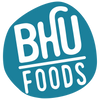
Nutrition Essentials: Pre and Post-Workout Foods for Optimal Fitness
Eating healthy and providing your body with all the nutrients it needs during the day is one of the pillars of vitality, along with exercising and regular sleep. Some say that about 80% of our health depends on our diet, and the more we know about the impact food has on every aspect of our bodily functions, the more this factoid seems to be true.
Being mindful of the food we consume can improve our health and help us feel strong and vital, but consistency is a must. That’s why, whether you’re adopting a new exercise routine or you’re already training regularly, understanding the importance of pre and post-workout foods is a game-changer. Here’s what you need to know.
Planning Pre-Workout Meals
When it comes to pre-workout meals, timing is crucial. It's best to have them at least two hours before your workout. This allows your body ample time to digest the food and convert it into the energy you'll need during your gym session. The key here is to focus on foods that balance carbohydrates and proteins well, with minimal fat content, which can slow down digestion.
Carbs
So, what does this mean in practice? To keep your energy levels steady, you need your glucose levels to be steady, and this is where carbs come in. Some of the best pre-workout foods that are rich in carbs include:
- Fruit (bananas, apples, berries)
- Whole grains (rice, oats)
- Greek yogurt, cottage cheese
You can mix and match these in a small meal or as a snack, whatever works best. It may take time to figure out what foods do the trick for you, so be open to exploring.
Protein
Proteins are the next big component of your pre-workout meals, and they come in many forms. Some people prefer chicken and rice, while some have favorite protein bars they eat half an hour before exercising.
You can go for protein cookies or nutrient-dense protein bars or even have a full protein-dense meal as your pre-workout. Some of the best sources of protein for your pre-workout meals are:
- Eggs
- Chicken and turkey
- Protein bars
- Fish
The main reason your body requires proteins, especially while exercising, is that they’re the source of amino acids, which are essential in building and repairing your muscles. Regularly consuming protein will let you see the benefits of your workouts faster and prevent injuries in the long term.
Consuming enough protein is essential if you’re dealing with an unbalanced gut microbiome or auto-immune-related diseases like neuropathy that can affect your performance. This is one of the precautions that you can take so that you can continue working out safely, as well as wearing socks for neuropathy in the toes to keep yourself stable and centered or taking supplements that will incrementally improve your gut microbiome over time.
Planning Post-Workout Meals
The hard part is over, and you’re out of the gym. Chances are, you’re not feeling too hungry yet. This makes sense because your nervous system sends blood and oxygen to the muscles that you’re working with, so your digestive tract and hunger cues that come with it are deprioritized.
However, after a while, your hunger will surge, and by that time, it’s a good idea to have a nutritious meal in the making to avoid overeating. Proteins and carbs are still the most important nutrients to include in your meal because they’ll help your body recover and replenish faster.
The good news is that you can use any ingredients from the pre-workout snacks to prep your post-workout, but it’s always a good idea to have more variety in your meals.
Carbs that you can include in your post-workout meal can be:
- Sweet potatoes
- Beans
- Lentils
- Pasta
- Lettuce and vegetables
Some carb-dense foods are also fiber-dense, which can be a god-send for anyone who has digestive issues. If you’re opting for pasta for your post-workout meal, make sure not to overcook it as it will be easier to digest that way.
Proteins should be side by side with your carbs, as they’ll help you stay full for longer and keep your energy leveled, avoiding crashes during the day. Your sources of protein can be:
- Lean beef
- Seafood
- High-protein sweets (like high-protein cookie dough or homemade protein smoothies)
- Legumes
- Nuts and nut butters (also a source of healthy fats)
As you can see, there are countless ways for you to mix and match these two categories and get a delicious and nutritious meal time after time. The truth is that both pre and post-workout meals fit nicely into a bigger picture of taking care of your body and well-being on a sustainable, holistic level.
Stay Hydrated!
We can’t talk about exercising and eating well without mentioning hydration and its impact on your overall health. Drinking enough water throughout the day, especially before, during, and after a workout, will ensure that your body functions optimally and that all those nutrients are transported where they need to be.
When you’re hydrated, you help your body recover faster after exercising, allowing for better performance in the future. Remember to drink water at a steady rate throughout the day, and while working out, take only small sips to avoid feeling heaviness or stomach upset.
Conclusion
Knowing what to eat before and after your gym sessions determines how you feel during and after them. This is powerful because eating well can energize you, so you’ll feel stronger even when you’re working hard. This, in turn, can incentivize you to keep coming back to the gym for that rush of endorphins you get after a workout, and as a result, you’ll feel better and stronger in your skin. It’s a win-win-win situation!
Invest in your health and embrace a brighter, more energized you by committing to our empowering 10-Day Sugar Detox Challenge.











